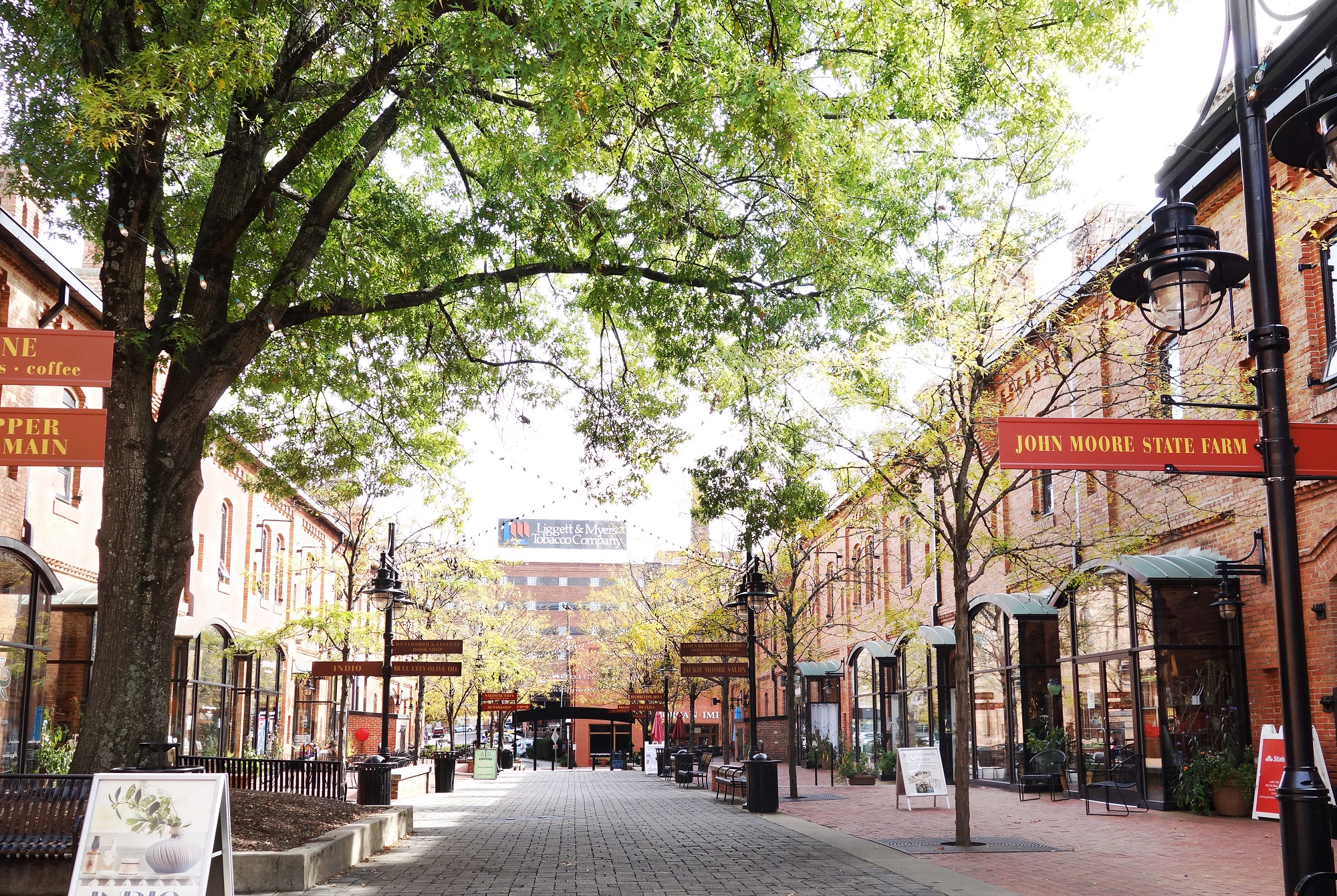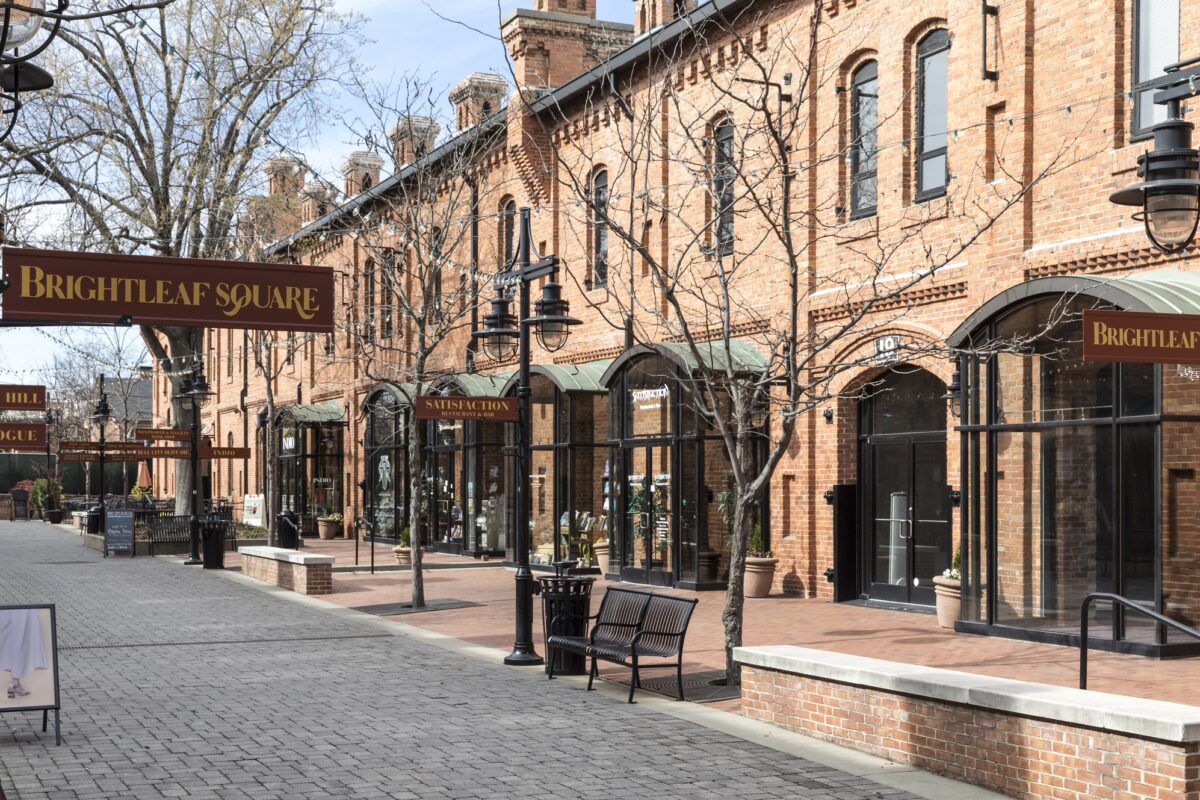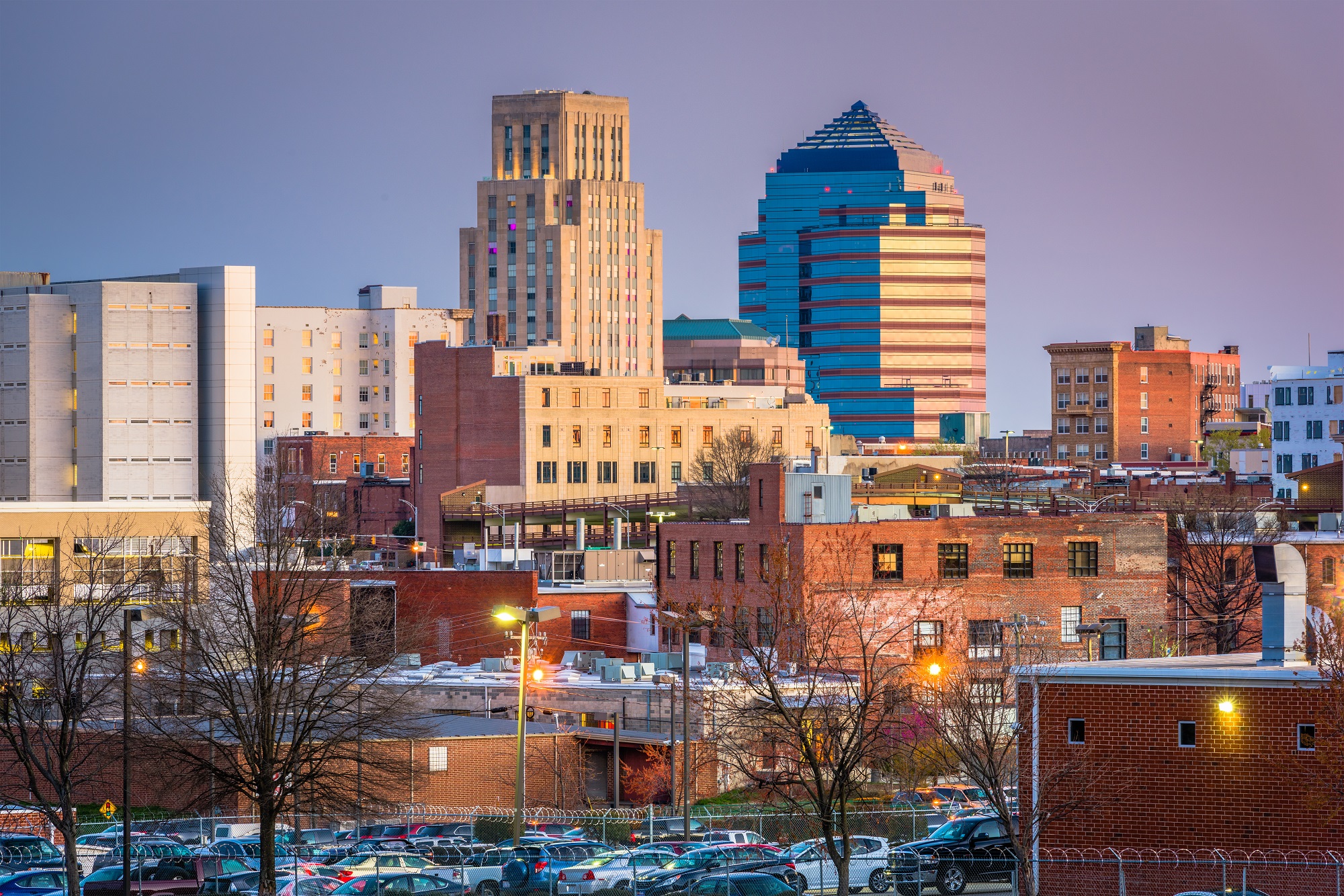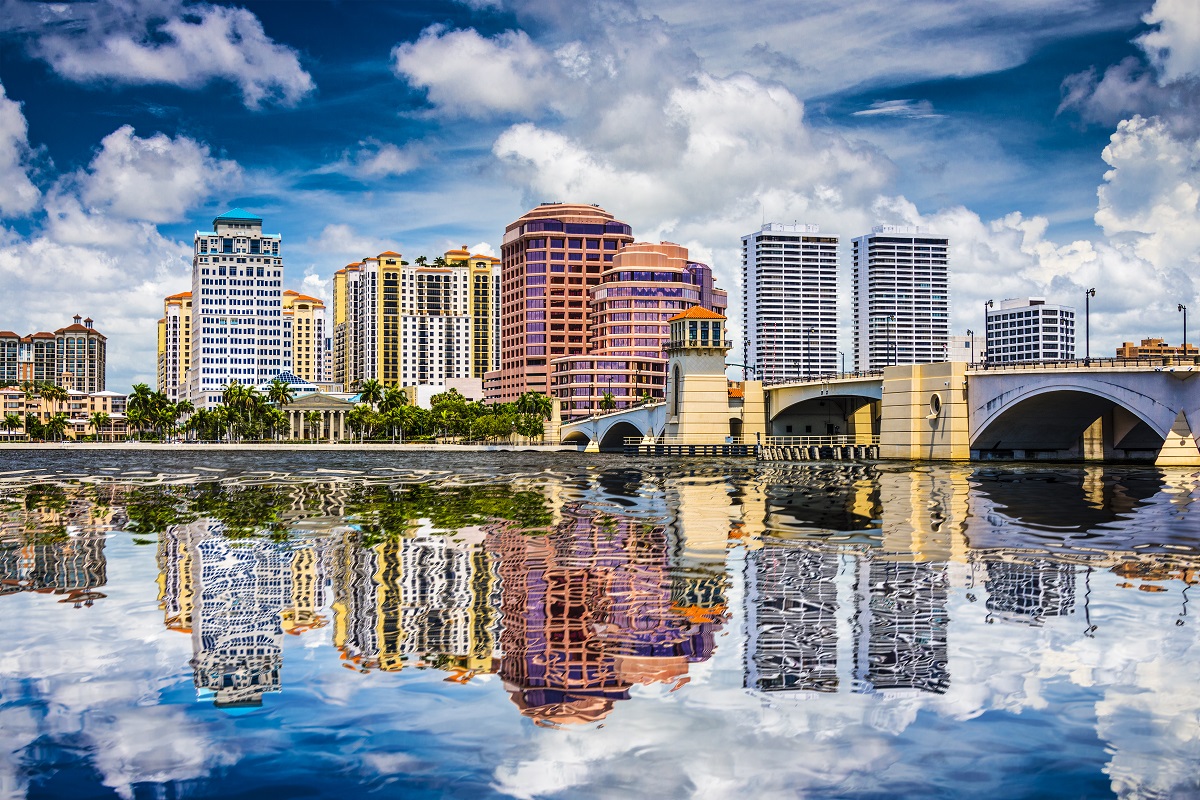
What Is the Cost of Living in Durham, NC?

Setting up shop in Durham, NC, is becoming an increasingly popular move in recent years.
Think of the Durham area as the sweet spot of North Carolina—combined with its two Research Triangle neighbors, Raleigh and Chapel Hill, the city feels spacious enough to rival Charlotte. Durham has retained a blend of coziness and accessibility that makes it a uniquely appealing place to live.
If you’re preparing for a move to Durham, you and your wallet will be happy to know that you’ll be making an economical move. This guide will cover the cost of living in Durham in the following categories:
- Housing
- Utilities
- Transportation
- Food, leisure, and entertainment
Without further ado, let’s get acquainted with what moving to Durham, NC, means for your budget.
Cost of living Durham, NC: Housing
On the whole, the cost of living in Durham, NC, is relatively cheaper than in the rest of the country. Housing in Durham rests 43% below the national average cost of housing. Durham is also the most affordable city to find real estate in comparison with the four neighboring cities in the Durham-Raleigh metropolitan area:
- Most expensive: Chapel Hill
- Cary
- Raleigh
- Most affordable: Durham
The majority of Durham residents own the homes they live in—56% of homes in the area are owner-occupied, while 43% are rented. With the median household income hovering around $58,905 per year, the median cost of a home in Durham is $254,698.
Cost of living in Durham: Apartment sizes
On the whole, apartments in Durham average the following rental fees per month:
| Apartment Size | Monthly Rent Cost |
| Studio apartment | $961 |
| One-bedroom apartment | $967 |
| Two-bedroom apartment | $1,125 |
| Three-bedroom apartment | $1,451 |
| Four-bedroom apartment | $1,701 |
However, if your heart is set on moving to the city center, expect to pay markedly higher rental prices. Housing costs $1,480 per month on average, with the average size of a single-bedroom unit measuring 935 square feet.
About 54% of renters in Durham pay $1,001 to $1,500 in rent, with 26% paying $1,501 to $2,000 and 13% paying $701 to $1,000.
Cost of living in Durham, NC, by neighborhood
The most expensive apartments in Durham are found in the following best neighborhoods:
- Trinity Park
- Warehouse District
- West End Durham
These enclaves are a stone’s throw away from Duke University’s East Campus, which makes the demand for housing high and rent price tags correspondingly pricey. Many Durham residents, particularly newcomers, are retreating from the campus scene and scaling rent fees, choosing instead to settle in South Durham.
Cost of living Durham, NC: Utilities
Apart from housing costs, Durham residents enjoy utilities for approximately 13% less than other Americans. The weather in Durham is far from extreme, but as a subtropical region, the city gets its fair share of precipitation, which means plenty of moist, sticky weather come summertime.
On average, Durham residents should expect to pay around $15 per sq. foot of their apartment. A typical 915-square-foot unit shelled out $135.13 per month in utilities, which accounted for:
- Electricity
- Heat and air conditioning
- Water
- Waste management
While the average electricity bill will cost you around $145 per month, a Wi-Fi connection with unlimited data will be a little over $60 per month.
Cost of living Durham, NC: Transportation
The average single adult in Durham with no dependents pays approximately $5,113 for transportation annually. However, your travel expenses may depart from the mean depending on how you elect to shuttle yourself around the city.
Option 1: Car
The best way to get around Durham, NC, and the two fraternal cities in The Triangle, is by car. Gas in Durham costs around $2.42 per gallon—which is roughly 20% less expensive than the national average price of gas.
Option 2: Bus
Durham also maintains two bus lines as a form of public transport: GoDurham and GoTriangle. GoDurham services the city of Durham with 21 bus routes, while GoTriangle makes all three Triangle cities (as well as nearby Cary) accessible with a network of 22 routes.
Here’s what to know budget-wise about getting around by public transit in Durham:
- On the whole, riding with GoDurham is cheaper than with GoTriangle. One-way passes with GoDurham cost $1, while GoTriangle passes cost $2.25 and $3.00 for express routes.
- Both GoDurham and GoTriangle offer passes for multi-ride or multi-day use. A Day Pass with GoDurham costs just $2 in contrast to GoTriangle’s $4.50 unlimited daily pass. The most expensive tickets for the services are GoDurham’s monthly pass ($36) and GoTriangle’s monthly pass ($76.50).
- Buses are a convenient, more affordable way to navigate the Raleigh-Durham area if you do not have a car. Buses with both transport systems run every hour or half-hour. For precise schedules for each bus route, visit GoDurham or GoTriangle.
If you plan on relying on public transit for navigating Durham, your most economical option may be the Regional Pass, which will grant you access to all four transit systems in the Durham-Raleigh metro area:
- GoDurham
- GoTriangle
- GoRaleigh
- GoCary
Regional passes may be purchased for a single day ($4.50), one week ($16.50), or one month’s use ($76.50).
Option 3: Bike
Looking for fun things to do in Durham, NC? Cycling is a popular way to get around Durham, whether as a daily mode of commuting or as a way to unwind and stay fit.
Durham is highly bikeable, so if you’re already partial to cycling this mode of transport might be an ideal (and affordable) way to get around. Numerous bike boulevards wind through town, and the city has plans to fund construction for more “bike and hike” routes to make it even more convenient for city dwellers to commute on two wheels.
Option 4: Taxi
Aside from your typical rideshare apps such as Uber and Lyft, another way to get from point A to point B in Durham is by taxi.
The flat fee for local cabs costs approximately $3.60 to start, with an additional $2.13 per additional mile.
Cost of living Durham, NC: Food, leisure, and entertainment
If you’re a foodie moving to Durham, you’re in luck—not only is the city (and neighboring world-class culinary destination Raleigh) a great place to eat out, but North Carolina’s deep agricultural roots mean you’ll have access to first-rate produce and whole foods.
Here’s how some of the popular ways to chow down in Durham measure up money-wise:
- Cooking at home: Durham is home to a few ultra-affordable southern grocery store chains like Harris Teeter and Food Lion, as well as more upscale markets like Whole Foods. On average, Durham grocery prices are 4% cheaper than national rates.
- Dining out: Restaurants in Durham run the gamut from franchises, to fine dining, to hole-in-the-wall roadside gems that will serve you a delectable meal on the cheap. Numbeo estimates a meal for one at an affordable restaurant will cost around $13, while a duo dining experience at your average eatery registers at $61.
- Joining a farm share: Dozens of small, local farms surround Durham, many of which offer Community Shared Agriculture (CSA) programs that grant members weekly farm-fresh produce for between $17.50 and $32 a week. For more information on Farm Shares in your area, visit the LocalHarvest registry of Durham farms.
Beyond budgeting to feed your stomach, you’ll need to budget for how to feed your soul in Durham, NC. Here are some popular ways Durham residents opt to entertain themselves:
- One adult movie ticket at the AMC Classic Theater in Durham: $9.49
- Admission to the North Carolina Museum of Art: Free
- Admission to the Sarah P. Duke Gardens: Free
- Admission to the North Carolina Botanical Gardens: Free
- Ticket to Durham’s local escape room, Bull City Escape: $26 per person
- Entrance fee to Falls Lake State Park: $7 for vehicle parking, up to $33 to camp
One of the best parts of Durham is the accessibility of university resources like museums, gardens, and games. Whatever your budget, you’ll be in no short supply of ways to enjoy your leisure time—without burning out your checking account.
Discover your budget-happy apartment with Landing
En route to Durham for your next move? Life in this city won’t have you pinching pennies, and your apartment shouldn’t, either.
If you’re on the hunt for an apartment, a flexible lease, and a spot that’s furnished with everything you need to feel at home, check out Landing’s furnished apartments in the Durham-Raleigh metro area. We’ll help you find your next landing pad so that you can be sure that wherever you drop the anchor, it’ll feel (and cost) just like home.









